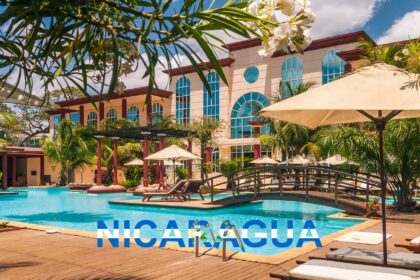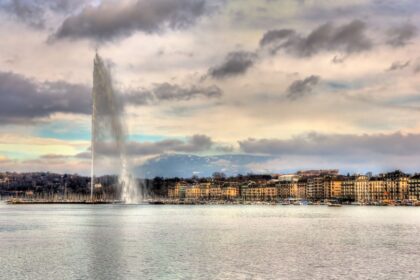Beijing, the capital of China, can vary in terms of expense depending on your travel preferences and choices. Here’s everything you need to know about Beijing Travel Costs:
Accommodation
Budget travelers can find hostels and guesthouses for as low as $10 to $30 per night.
Mid-range hotels typically range from $50 to $150 per night.
Luxury hotels can go well above $200 per night.
Food
Street food and local eateries offer affordable options, with meals starting at around $2 to $5.
Dining in mid-range restaurants may cost around $10 to $30 per person.
High-end dining in upscale restaurants can be considerably more expensive.
Transportation
The Beijing subway system is efficient and affordable, with a flat fare of about $0.50 per ride.
Taxis are relatively inexpensive, starting at around $2, with additional charges based on distance.
Bicycles and electric scooters are also available for rent at reasonable rates.
Sightseeing
Many of Beijing’s top attractions, such as the Forbidden City and Temple of Heaven, have admission fees that range from $5 to $15.
The Great Wall of China may require a day trip, which can cost $20 to $50, including transportation.
Entertainment and Activities
Tickets for cultural performances, like Peking Opera or acrobatic shows, can range from $20 to $50.
Museums and art galleries usually have moderate entrance fees.
Shopping
Beijing offers a wide range of shopping experiences, from affordable markets to high-end boutiques.
Bargaining is common in markets, so you can often negotiate prices for souvenirs.
Miscellaneous
SIM cards for data and local calls are relatively inexpensive and can be purchased at the airport or local stores.
READ ALSO: Budget Travel Guide to China: Exploring the Middle Kingdom on a Shoestring
Additional Tips and Considerations:
Language
While many signs in Beijing are in both Chinese and English, it’s helpful to have some basic Mandarin phrases or a translation app to communicate with locals, especially in less touristy areas.
Visa Requirements
Check the visa requirements for your nationality well in advance. Most travelers to China need a visa, which can vary in cost and processing time.
Internet Access
Consider getting a local SIM card or portable Wi-Fi device for internet access throughout your trip. It can be useful for navigation and communication.
Weather
Beijing experiences hot summers and cold winters, so pack accordingly based on the season of your visit. Spring and autumn are considered the best times to visit for milder weather.
Air Quality
Beijing’s air quality can vary, and smog can be an issue, particularly in winter. Check air quality indexes and consider wearing a mask on days with poor air quality.
Transportation Cards
Purchase a trans0portation card (Yikatong) for convenient access to subways and buses. It’s reloadable and can save you time and money compared to buying single tickets.
Safety
Beijing is generally a safe city for travelers, but like any major city, be cautious of pickpocketing in crowded areas, and keep your belongings secure.
Cultural Respect
Respect local customs and traditions, such as covering your shoulders and knees when visiting temples, and addressing people with proper titles and greetings.
Haggling
Bargaining is common in markets and some shops. Be prepared to negotiate prices, but do so respectfully and with a smile.
Tipping
Tipping is not a common practice in China, and it’s not expected. However, in upscale restaurants and hotels, a service charge may be added to the bill.
Hydration
Carry a reusable water bottle and drink bottled or filtered water to stay hydrated, especially during the hot summer months.
Local Cuisine
Don’t miss the opportunity to try Beijing’s famous Peking Duck. It’s a must-try local specialty.
Transportation Apps
Download transportation apps like Didi (similar to Uber) and local map apps to make getting around the city more convenient.
Remember that traveling in Beijing can be an enriching experience with its rich history, culture, and attractions. Planning ahead, being respectful of local customs, and staying informed about current conditions will help ensure a memorable and enjoyable trip to this vibrant city.
Here are some frequently asked questions (FAQs) about the cost of traveling to Beijing:
1. Is Beijing an expensive city to visit?
Beijing can be moderately expensive for travelers, but costs vary depending on your choices. You can find budget-friendly options for accommodation and dining, but luxury experiences can be quite costly.
2. What is the average daily budget for a traveler in Beijing?
A budget traveler can get by on around $50 to $80 per day, while mid-range travelers might spend $100 to $200 per day. Luxury travelers can spend much more.
3. Are there affordable accommodation options in Beijing?
Yes, there are budget-friendly options such as hostels, guesthouses, and budget hotels that offer accommodations for as low as $10 to $30 per night.
4. How much does food cost in Beijing?
Street food and local eateries offer affordable meals starting at around $2 to $5. Dining in mid-range restaurants may cost around $10 to $30 per person.
5. What is the cost of transportation in Beijing?
The Beijing subway is cost-effective, with a flat fare of about $0.50 per ride. Taxis are relatively inexpensive, and public buses are also affordable.
6. Are there any free or low-cost attractions in Beijing?
Yes, there are several free or low-cost attractions, including parks, markets, and some historical sites. Many parks offer a peaceful escape at no cost.
7. How much should I budget for visiting the Great Wall of China?
A day trip to the Great Wall, including transportation and admission, can cost anywhere from $20 to $50, depending on the section you visit and the tour you choose.
8. Is it customary to tip in Beijing?
Tipping is not a common practice in Beijing or China in general. Service charges may be included in upscale restaurants and hotels.
9. What is the best way to save money while traveling in Beijing?
To save money, consider using public transportation, eating at local eateries, and staying in budget accommodations. Also, look for combo tickets to visit multiple attractions at a discounted price.
10. Is it necessary to carry cash in Beijing?
Many places in Beijing, especially in tourist areas, accept major credit cards and digital payment methods like WeChat Pay and Alipay. However, it’s advisable to carry some cash for smaller establishments and in case of emergencies.
11. Are there any seasonal considerations for budget travelers?
Traveling during the shoulder seasons of spring and autumn can offer more moderate weather and potentially lower prices for accommodation and attractions.
12. How can I find the best deals on flights and accommodations in Beijing?
Booking in advance and using travel comparison websites and apps can help you find the best deals on flights and accommodations. Also, consider flexible travel dates for lower airfare prices.
Conlusion
In conclusion, Beijing offers a diverse range of experiences for travelers, with costs that can be tailored to various budgets. While it can be moderately expensive for those seeking luxury, there are plenty of opportunities for budget-conscious travelers to explore the city without breaking the bank.
From affordable accommodations and delicious street food to an efficient public transportation system, Beijing provides options for cost-effective travel. Additionally, with proper planning, you can visit some of the city’s iconic attractions without overspending.
Ultimately, your expenses in Beijing will depend on your preferences and choices. Whether you’re looking for cultural immersion, historical exploration, or culinary adventures, Beijing has something to offer travelers of all budget levels. By researching, budgeting wisely, and making informed choices, you can make the most of your visit to this vibrant and historically rich city.
In other article, Tips on How to Find Cheapest Airlines for Your Travel







